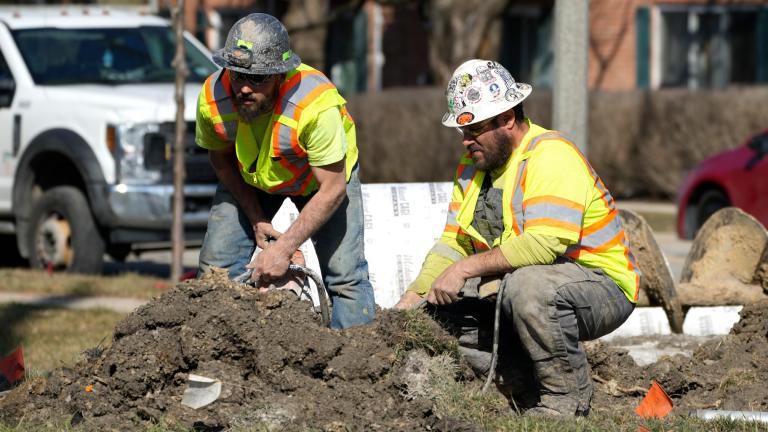Trade tensions are reaching a fever pitch between the United States and trading partners like China, Canada and the European Union.
Now, financial experts say it could affect billions worth of Illinois exports and the jobs in those industries. It's also having an impact on major Chicago-based companies and even a massive order for new CTA equipment.
The proposed tariffs could impact everything from soybeans to bread, dairy and pork to cars, machinery and equipment. According the U.S. Chamber of Commerce, $3.8 billion worth of Illinois exports are threatened as of the latest round of tariffs. They include:
- $1.3 billion worth of soybeans. In fact, one out of every three rows of soybeans planted in Illinois is exported to China.
- $445 million worth of vehicles
- $156 million worth of bread, pastries and cakes
- $128 million worth of herbicides
- $88 million worth of aluminum
Also, major Chicago employers have the potential to be hit hard too. Boeing could face a loss of business with a proposed Chinese tariff on airplanes. Its stock closed down nearly 2 percent after trading Wednesday. And Caterpillar, which makes construction machinery, saw its stock price fall over 3 percent today.
The Chicago Council on Global Affairs says an escalated trade war could reverberate across multiple sectors of the Illinois economy for years to come if it isn’t resolved soon.
“If China cancels contracts and gives them to Airbus, that’s business that won’t come back to Boeing,” said Cecile Shea, the council’s senior fellow on global security and diplomacy. “If you look at soybean farmers, we know they’ve planted smaller crops this year in anticipation of this. But the out years are concerning to them because you’ll have countries turning to Canadian products, Australian products. And so the long-range impact on soybean farmers could be pretty profound.”
Meanwhile, Mayor Rahm Emanuel is currently in China ostensibly to deal with some fallout of the trade war for Chicago. According the mayor’s office, Emanuel is there with World Business Chicago specifically trying to ensure that a proposed Chinese-owned manufacturing facility that would produce CTA rail cars will still be built in Hegewisch despite the trade dispute. It’s unclear how exactly the proposed tariffs will impact the planned $100 million project at this point.
Despite the concern from business and civic leaders in Illinois, there is a point of view that the current tit-for-tat approach will result in short-term pain for long-term gain, and that the president needs to engage in tough trade tactics to even out the playing field between the U.S. and its trading partners. But the Council on Global Affairs says a more measured approach could have sidestepped the current uncertainty.
“Everyone agrees that there should be consequences for Chinese unfair trade practices and ways of doing business with American companies. That is not in dispute,” Shea said. “What is in dispute is the way the Trump administration has gone about this. It was initially supposed to be scalpel like and very carefully targeted in order to encourage China to change its behavior while not hurting the U.S. economy.”
The Cook County Farm Bureau says that the soybean crop is already planted for this year. The big worry is about next year when farmers will be forced to decide which crop they want to plant and where they are going to sell it. The climate of uncertainty is also problematic for companies like Caterpillar that produce equipment here, but import component parts from places like China. The trade war could result in these companies being forced to price themselves out of the market.
On the other end of the spectrum is the U.S. Steel Company’s plant in the western Illinois town of Granite City. That company credits the Trump administration’s tariffs on aluminum and steel with the reopening of a shuttered blast furnace and the hiring of around 300 employees.
But state business associations say the potential harm outweighs the benefits. Illinois Chamber of Commerce Executive Director Todd Maisch was on Capitol Hill Wednesday presenting the concerns of his group to members of the Illinois delegation.
“The problem that everyone has here is that there is no clear end game,” Maisch said. “For instance, how do these trade volleys lead to an end to patent theft? I think business in Illinois is willing to give the president four or five more weeks before you see sentiment start to really turn.”
The U.S. Chamber says 1.7 million Illinois jobs are connected to foreign trade, and that Illinois is one of the top five states for direct foreign investment.
Follow Paris Schutz on Twitter: @paschutz
Related stories:
Escalating Trade War Sparks Fear for Wall Street, US Consumers
Why Illinois Soybean Farmers Fear a Potential Trade War With China








